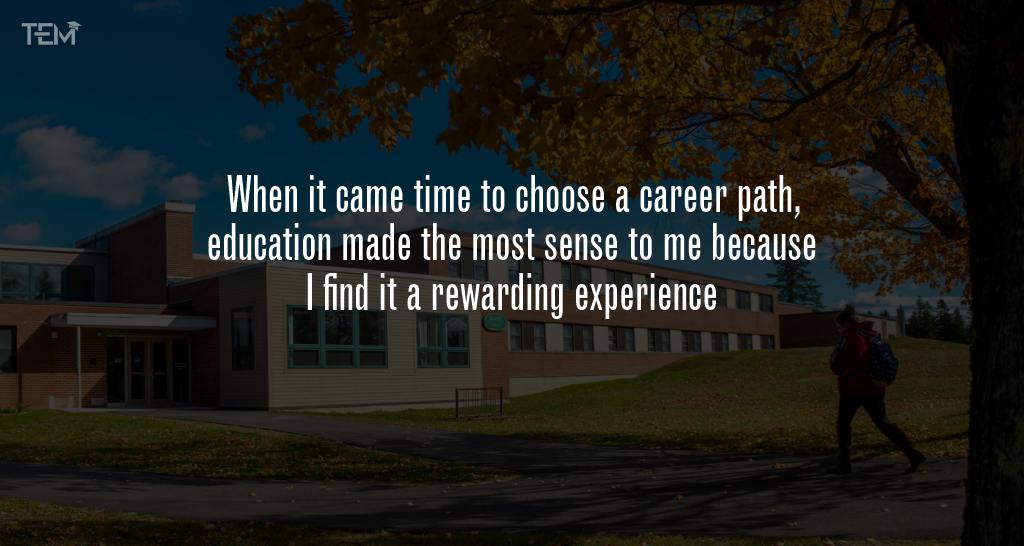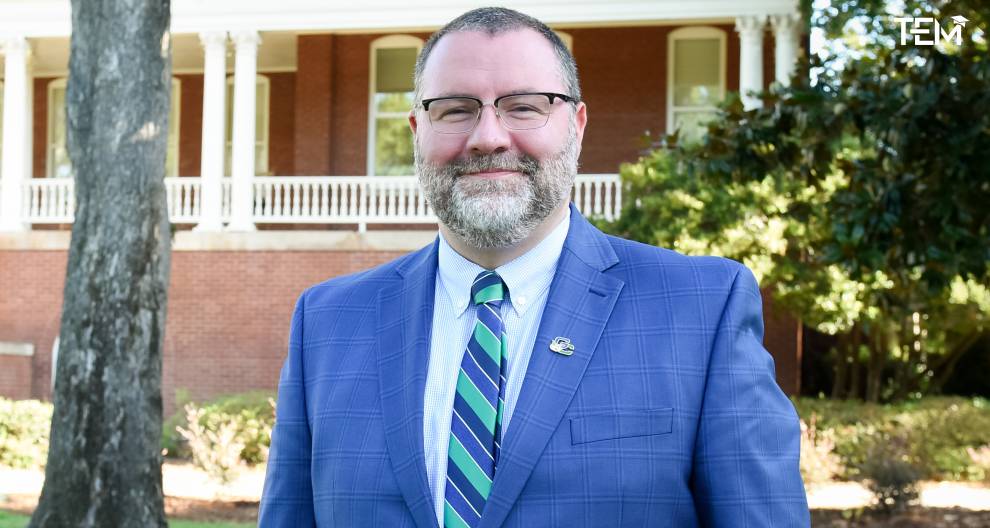Dr. Eric Jones is a remarkable educator transforming the learning experience for botany students and the community. As an Associate Professor of Botany and Faculty President at the University of Maine at Machias, Dr. Jones is committed to revolutionizing education. His unique approach empowers students, and the education community highly regards his contributions.
With 11 years of experience as a professor, Dr. Jones has gathered knowledge from influential leaders he has encountered throughout his career. In his view, educational leaders face a challenging task: assisting students in achieving their goals while fostering a culture of shared governance with the faculty responsible for designing and sustaining academic programs.
According to Dr. Jones, influential educational leaders possess essential qualities such as honesty, integrity, empathy, and a willingness to prioritize the greater good over personal interests. He firmly believes that leaders should approach their role as a service rather than a position of power. With his positive outlook on leadership, Dr. Jones confidently asserts, “I have been in leadership roles for most of my life and I’ve learned that a good leader sees their position as one of service rather than one of power.”
Let’s delve into his impressive journey and explore his commitment to the education industry.
Embarking on an Educational Journey
From his early days as a member of the Boy Scouts of America, Dr. Jones discovered his true calling: to make a meaningful impact on the world. Motivated by an unwavering determination, he developed a natural inclination to positively influence the lives of others through active participation in community service initiatives. As a first-generation, non-traditional college student at Tallahassee Community College (TCC), Dr. Jones’s commitment to excellence propelled him forward, ultimately leading to his bachelor’s and Ph.D. in biology from the prestigious Florida State University (FSU).
When it came time to choose a professional path, Dr. Jones’s intuition drew him toward teaching, recognizing the immense satisfaction it brings. Helping individuals and nurturing their intellectual growth became his source of profound joy, fueled by deep curiosity. Moreover, as he delved deeper into his studies, biology captured his attention with the deep complexity of DNA and the diverse ecosystems surrounding us.
Shortly after completing his Ph.D., Dr. Jones embraced the prominent role of botany professor at the University of Maine at Machias. Alongside his academic accomplishments, he excelled as a teaching assistant across disciplines, ranging from mathematics to biology, at both TCC and FSU. While his initial research explored plant mating systems, his current passion lies in transforming educational practices.
Motivated to engage students actively, Dr. Jones stands at the forefront of developing gamified flipped classes. This innovative approach ignites a sense of wonder in learners inside and outside the traditional classroom setting. Simultaneously, he encourages student involvement in conducting natural resource inventories for a regional land trust. This collaborative effort spans various courses, with students meticulously planning and executing these inventories. In support, student workers in the herbarium diligently curate plant collections, serving as accompanying vouchers for the project.
Evolution of the University
The University of Maine at Machias (UMM) has a rich history rooted in education. Initially established in 1952 as the Washington State Teachers’ College, it evolved from the Washington State Normal School, founded in 1911. After joining the University of Maine System (UMS) in 1968, it became the University of Maine at Machias in 1970. Recognizing its unique location among diverse natural communities UMM expanded its focus to include science and biology in 1973. Today, UMM proudly serves as the regional campus of the University of Maine, collaborating with its counterpart to define a mutually beneficial relationship.
Array of Academic Programs
The University of Maine at Machias (UMM) offers extensive academic programs, including Integrative Biology, Marine Biology, Psychology and Community Studies, Education, Small Business Management, Recreation and Outdoor Leadership, and the Creative Arts. These programs actively contribute to students’ growth and development, equipping them with essential skills and fostering a deep sense of community service.
The institution’s emphasis on service learning drives students to apply their classroom knowledge to practical situations, establishing invaluable connections with prospective employers. By engaging in hands-on experiences, students gain a profound understanding of translating theory into action, preparing them to excel in their chosen fields.
Beyond technical proficiency, UMM recognizes the importance of cultivating soft skills crucial for professional success. Effective communication, collaborative teamwork, and adaptability are nurtured; ensuring graduates possess a well-rounded skill set that empowers them to thrive in diverse work environments.
Advocacy for Academic Empowerment
Dr. Jones is a leader for faculty rights at his institution and across the university as president of the faculty assembly. He bridges the gap between educators and administrators and diligently hears all sides. Dr. Jones also promotes student empowerment by ensuring student participation at faculty meetings where they are free to voice their own concerns.
In response to changes in online course delivery during the pandemic, Dr. Jones had to modify his teaching methods, notably the flipped classroom strategy. He worked to create gamified course structures that utilize the Learning Management System (LMS) to present information engagingly. Drawing from his experience as a lifelong player of role-playing games, he created a fictional universe where students utilize their knowledge to respond to inquiries about unique species. This narrative-based approach recognizes and challenges students’ achievements. The individuals associated with the Center for Innovation in Teaching and Learning at his university have supported him and his colleagues in these efforts.
Diversity and Inclusion on the Campus
Every successful institute follows a diverse system of administration. UMM’s vision of diversity is “a resource that strengthens the learning process and energizes the campus community, being mindful that it can be a source of misunderstandings and wasted potential,” states Christopher Richards, Director of Enrollment.Furthermore, Dr. Jones adds a couple more statements justifying what their perspective describes as diversity.
- Considering the diversity and reflecting on and strengthening individual and institutional values is essential.
- Research has shown that diversity initiatives are more effective in environments with shared values such as academic excellence, civic responsibility, self-respect, and goodwill towards the campus community.
- UMM warmly welcomes international students and highly values their contributions to the campus community. Except for Canadians, who pay in-state tuition fees, international students pay the same tuition as domestic out-of-state students.
Quest for Holistic Education
A change in the education system after every specified tenure is essential. When asked about potential changes and integration, Dr. Jones responded subtly.
He seeks to redefine education by bridging career preparedness with a deep appreciation for liberal arts. Recognizing the value of interdisciplinary learning, he advocates for a holistic framework that fosters personal growth and enriches professional endeavors. Driven by genuine concern over the commercialization of higher education, he aims to shift the focus back to a comprehensive educational mindset.
With the power to effect transformative change, Dr. Jones envisions a future where students possess practical skills for success while embracing a breadth of disciplines that nurture critical thinking and empathy. Through his visionary leadership, he strives to empower students as intellectually curious, socially aware, and adaptable individuals ready to navigate a complex world. Hence, he states, “If I had the power to change one aspect of higher education, I would shift the focus to one of a deeper appreciation for a holistic educational mindset.”
Wise Words of Advice
Dr. Jones suggests that education leaders enact the following points for a healthy education system.
- I advise those in academia to pay close attention to individuals. We educate individuals. It is individuals who create and maintain programs of study.
- Appreciating diversity goes beyond just looking at demographic data. It means valuing what each individual contributes to our shared goals.
- To be effective, we must cultivate empathy, humility, and curiosity and be open to learning from our students.
Quotes

ALSO READ: The 10 Inspirational Education Leaders, 2023


